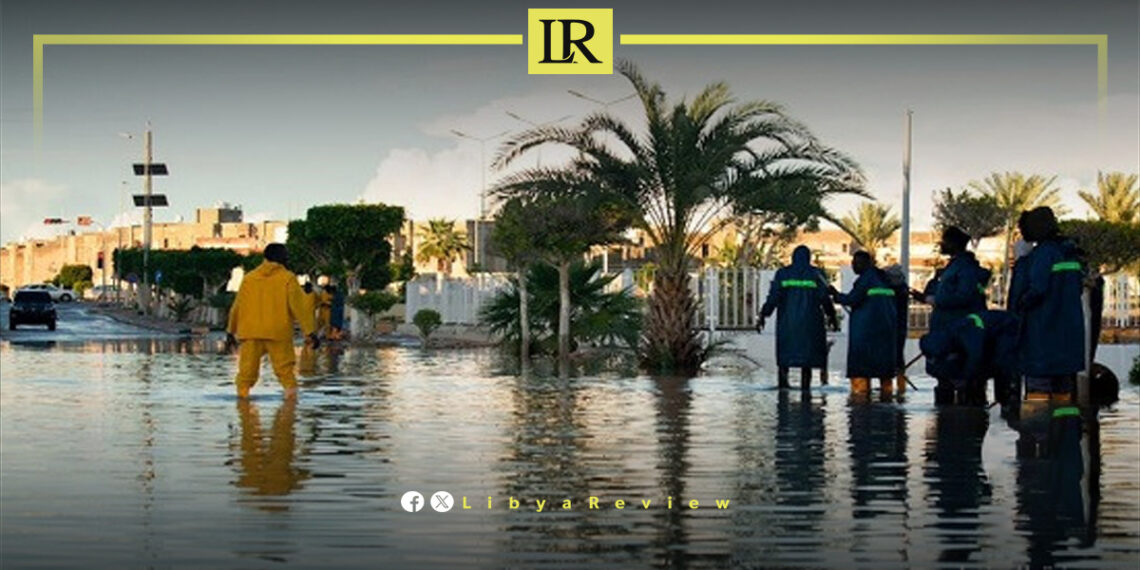Emergency teams from the General Water Company Services Office in Sirte, in coordination with the National Development and Public Sanitation Authority, are continuing their efforts to manage the aftermath of heavy rains that hit the city in recent hours.
The ongoing operations include clearing sewer systems and removing water accumulations from streets and residential neighborhoods. These efforts are being supervised by the Emergency Committee for Climate Change in Sirte Municipality, under the direct supervision of the city’s mayor.
Supporting these efforts are traffic and rescue officers from the Sirte Security Directorate, municipal guards, ambulance and emergency teams, and the Libyan Red Crescent volunteers. Their combined efforts aim to facilitate traffic movement and provide on-ground assistance to affected areas.
Libya has been in chaos since a NATO-backed uprising toppled longtime leader Muammar Gaddafi in 2011. The county has for years been split between rival administrations.
Libya’s economy, heavily reliant on oil, has suffered due to the ongoing conflict. The instability has led to fluctuations in oil production and prices, impacting the global oil market and Libya’s economy.
The conflict has led to a significant humanitarian crisis in Libya, with thousands of people killed, and many more displaced. Migrants and refugees using Libya as a transit point to Europe have also faced dire conditions.
The planned elections for December 2021 were delayed due to disagreements over election laws and the eligibility of certain candidates. This delay has raised concerns about the feasibility of a peaceful political transition.
Despite the ceasefire, security remains a significant concern with sporadic fighting and the presence of mercenaries and foreign fighters. The unification of the military and the removal of foreign forces are crucial challenges.


